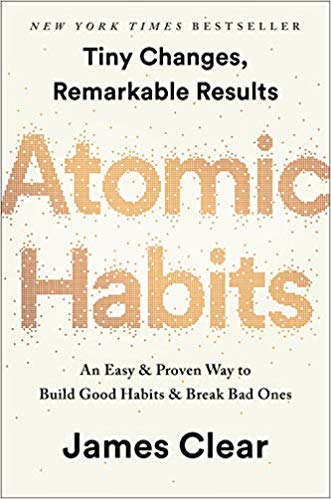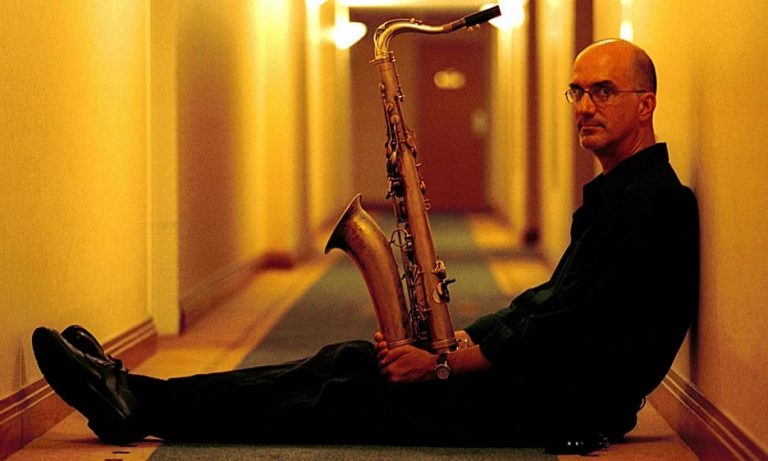
The Benefits of the Ear to Instrument Connection
I recently watched a video performance by the amazing classical pianist Yuja Chang. I’ve seen her memorizing motion and heard her virtuosic playing before, but something hit me after seeing
Categories:
Categories:
You’ll hear me say that over and over in my masterclasses and throughout my online course Improvisation Savvy. I’ve written it in Jazz Patterns for Ear, Alto Trombone Savvy, and every other method book I’ve published.
I’m referring to some particular single exercise or warmup element I’ll recommend that is important to one’s overall practicing or playing routine. Just do it a little bit every day as part of your practicing.
I recommend this because the power of doing something-just a little something-every day can be transformational.
The approaching new year for many signifies the chance for renewed personal change and growth. So I want to share with you how small habitual activities can grow into important changes within your life. Good habits can manifest themselves into losing weight, staying healthy, raising happy and well-adjusted children, earning a greater income, getting smarter, and certainly becoming a much better and more confident jazz player!
If you are familiar with my work, you’ve probably heard or read my praise for the book Atomic Habits by James Clear. Written from his meticulous research along with his own observations, Clear makes a compelling case for the transformative power of habit.

He views habits as 1. tiny activities in our lives, 2. the building blocks of who we become, 3. like an atomic bomb, a mighty long-term power arising from those tiny atomic activities swirling around.
When I’m recommending that people do something just a few minutes each day, I’m referring to that particular atom within their practicing.
Clear doesn’t just consider habits a ‘nice to have’ in our lives. He sees them as the essential building blocks defining who we are, for good or bad.
Popular opinion states that achievement begins with a goal. But is that true or even enough to become much better at something? After all, every Olympic athlete has the same goal, which is to win. So what distinguishes the swimmer who walks away with the gold medal from everyone else who had that identical goal?
A goal is an outcome you desire, so people typically start with the outcome: I want to play jazz better, or I want to play higher and faster on my trombone, or I want to play fluently over Giant Steps. Then from that outcome, they back into a process or a plan they believe will best get them to that desired outcome. The assumption is, if I do those things and reach my outcome, I’ll become the kind of person I want to be.
Clear believes that it’s actually the reverse that gets you quicker to your goal. Don’t start with the goal, but instead start with knowing the type of person you want to become.
Goals are for people who care about winning/achieving one time but systems are for people wanting to win again and again. So the question to ask yourself is, “What systems am I building?”
Whether you realize it or not, you are always building systems. Unfortunately, most people are not aware of what they are building. They wake up one morning halfway through life wondering how they got there. Well, they got there through a lifetime of systems built from their mostly unconscious habits.
If there is ever a gap between your desired outcome and your daily habits, or between your goals and systems, your daily habits will always win. Your current habits are perfectly designed for your current results. Take a moment to think about that. Your current results are precisely crafted from your lifetime of habits.
The Greek Philosopher Archilochos said, “We don’t rise to the level of our expectations, we fall to the level of our training.” Put another way, “We don’t rise to the level of our goals, we fall to the level of our systems.”
So how can you build the systems that lead to you being the player you imagine you can be?
You want to be the best possible player you can be, but how? Well, practice three hours or more each day.
You want to be thinner, but how? Stop eating carbs.
To reach either of these goals requires tremendous willpower. Can you sustain your hours-long practice regimen or stay away from bread for the long run?
It’s hard to constantly resist what you desire and it’s why people gain back their original weight or why musicians fall short of becoming the player they could have been. Sheer willpower isn’t sustaining enough to build good systems through habit.
There’s another difficulty with developing habits through willpower. Good habits pay off in the long term while bad habits pay off in the short term. Think of a smoker going outside to enjoy a cigarette. His short-term payoff includes perhaps some socializing with a fellow smoker, a break from work, and the stress release from inhaling that warm aromatic smoke. Mmmmm…
We all know the long-term result of that habit.
Consider the short-term payoff of a big juicy cheeseburger wrapped in bacon with a side of fries and the long-term ill effect of its habitual consumption? The reverse is true of ordering a garden salad. Not so yummy today, but after a lifetime of them, you can remain active and attractive, and around to watch your children live much more of their lives.
On the other hand, with practicing, you put in your time, and when you finish for the day, are you a better player? Maybe in some small short-lived technical way, but the real payoff comes in the long-term.
If you wonder why you habitually do the things you do, it’s because behaviors that get rewarded get repeated and behaviors that get punished get avoided. Salads aren’t exactly a punishment, but they certainly lack the dopamine squirt of that cheeseburger!
So if slavishly practicing doesn’t provide much of a short-term reward, how can we build robust practicing into a long-term habit? Well, instead of relying on willpower, what if instead, you focus on the type of person you want to become? Rather than looking at the clock, dreading the next hour or more, and mustering up the discipline for this period of solitary playing, you focused instead on the type of person who seems to effortlessly improvise jazz and gains the material and popular rewards of their accomplishment? Ask yourself, what would THEY do?
I have always enjoyed practicing. I enjoy exercising daily and juicing each morning and eating clean, mostly raw veggies for my meals. But I am terrible at doing things habitually that I don’t feel like doing. If you ask how I maintain decades of what my friends call my intense discipline, my answer is that I hold in my mind the kind of person who plays trombone well and lives a long life free of serious health issues.
Both my parents had debilitatingly poor health throughout my entire life and I was determined to live free from that terrible obstacle. (By the way, rheumatoid arthritis and polio developed in both of their teen years was not their fault, but still…).
Place this under the chapter of affecting what is within your control. Life may throw you curveballs, and there’s little you can do about those. This article is about creating those moments of your life you can directly influence.
So, if it’s not goals that create success, but instead, your systems comprised of your collection of daily habits-all those little gears in this complex human machine-think about the person you wish to become and how that person behaves. What are their mindsets and habits? “What would THEY do?”
Consider two lifelong smokers who each recently stopped smoking. Each of them is asked if they’d like a cigarette. One of them says, “No thanks, I’m trying to quit.” The other replies, “No thank you. I don’t smoke.” Who do you think is more likely to remain cigarette-free long-term?
One is applying her willpower to resist smoking and the other has become in her own mind a non-smoker. She’s not depriving herself of something she wants. A non-smoker would never accept a cigarette. It’s not who they are. It’s not what non-smokers do.
Back to playing jazz, how would Michael Brecker answer the question, ‘to practice or not to practice’? Do you think Coltrane or Sonny Rollins had to psych themselves up each day to practice? Of course not. Their habits flowed naturally from their crystal clarity about the player they wanted to become. Daily habitual quality practicing is what great jazz players do.

As a purveyor of jazz skills methods, I’m well aware of the challenge I confront in this area
If I cranked out ii-V-I licks or solo transcriptions or chord/scale books, my audience would more quickly gain a short-term reward. The next time they were confronted with D- G7 Cmaj7, they could pull up a lick and sound like they were improvising. And, boy, would that be a hell of a lot easier for me to sell!
But I believe that the truth of jazz lies in the skill of spontaneously composing music based on the emotion of the moment and the story you wish to tell. No one can feed you the notes to that story.
The primary skill that allows your story to be amplified through your instrument is the frictionless connection between your musical mind and your instrument. And that doesn’t come neatly packaged inside a box delivered to your doorstep this afternoon.
Building and then reinforcing those necessary and complex connections within your brain takes time. How much time? How good do you want to be? The process is the same whether you wish to become the next innovative jazz genius on your instrument or just good enough to fearlessly and impressively stand up in front of an audience emoting over a chorus of 12-bar Bb blues.
The total time you’ll need to invest based on how skilled you choose to become is relative, but what remains an absolute is the requirement to practice the right things each day in order to build a process through habits that materially elevate your improvisational skills. Practice 15 minutes or 5 hours, but do it well and every day.
Through it all, I can hear you begging, “Just tell me what notes to play over A7 #9 b5. But I don’t think that best serves you in the long term.
Quick and easy sells like hotcakes. Slow and difficult… Not so much.
I am elated every time someone writes or calls me to thank me for the transformation they hear in their playing. “I’ve been working through Improvisation Savvy for a few months now and I am starting to play what I hear inside. I’m excited.”
I have respect for those people because I know that they’ve stuck with something despite its difficulty and their long wait for the payoff. But, unfortunately, they are in the minority.
1. Hold in your mind the vision of a player you admire and consider the effort he put forth to become the player he became.
2. Ask yourself the question, “What would he do?” when you are confronted with your resistance to continue a course of action that is difficult even though you believe it will eventually improve your playing. “What would young Michael Brecker do?”, “What would Herbie do?”, “What would Trane do?”
Remember the people I mentioned earlier being asked if they want a cigarette? Your answer to the question, “Should I practice today?” is not, “I should because I’m trying to get better.”
How about instead, “Of course, because I’m a musician improving his jazz skills. And that’s what we do.”

Trombonist, author, marketer, & tech guy
Share this post…

I recently watched a video performance by the amazing classical pianist Yuja Chang. I’ve seen her memorizing motion and heard her virtuosic playing before, but something hit me after seeing

I have created a AI chatbot called Jazz Master Chat that draws from 75 hours of interviews from my Jazz Master Summit event a couple of years ago. I interviewed

What is jazz improvisation? Let’s first define what I mean by jazz improvisation. Jazz improvisation is a spontaneous conversation, but instead of words, we use notes. Look at two possible

My recently turned 18 year old son is a passionate photographer He 8217 s got himself a little business

A couple weeks ago I sent Richie Beirach a YouTube clip from the movie Whiplash as a bit of

I originally meant to write this as a reply to a comment Richie Beirach wrote on my blog But

Tools for helping musicians at all levels learn about jazz and play to their full capability.
Web design and marketing by:
Michael Lake @JazzDigitalMarketing.com
This is just a fake book example for the type of website I can build for you. Just trying to use a little humor here!
9 thoughts on “The habit of being your best possible person and musician”
Just what I needed. Thanks, Mike.
Thank Michael for sharing your wisdom and knowledge. For me, this article has arrived on time! I needed to read this!
Yes!
Thank you Mike… I read this entire article. I am going to forward it to the musical educator friend the teaches College…. As a sidenote I grew up in Los Angeles… James Moody, Buddy Collette and some other very fine musicians we’re like family to me. Britt Woodman was a dear friend… My cousin plays trombone and was looking for a teacher… I asked Buddy for a teacher for my cousin or 50 years ago… He gave me a Britts name. I became close friends with Britt Woodman he showed me a lot of things. You are so generous with your Information would be more than happy to share a conversation with you talking about BrittI have some great positive stories… All the best to you and I will enclose the requested information. Be well Sincerely Bob Winett
An absolutely great article Mike.
Your post about maintaining good habits reminded me of a story I heard about that came through some Shaolin monks. They said that it takes seven years to create a good habit and 2 seconds to break it.
Ain’t that something???
Mike, great article bro!! I dug reading it and I think it will be helpful for many many people. It got me thinking about my own background.
I realized that I had such a different situation growing up in mMnhattan in the late 60 s 70 s 80 s. I started with classical piano lessons at 5 and I just knew when I heard the sound of the piano that that was going to be my life. Here is the thing: I DIDNT NEED ANY WILLPOWER!! I LOVED PRACTICING THE PIANO AND EVENTUALLY WORKING ON MY PERSONAL JAZZ VOCABULARLY, COMPOSING, PLAYING, ETC. I felt SAFE AND VERY COMFORTABLE PRACTICING ALL DAY AND NITE. My great pops had to grab me gently, of course, by the back of my shirt and literally lift me off the piano bench when it was 9 pm and everybody had to HIT THE HAY as he used to say.
I had a completely different journey to finding my musical self. I needed WILLPOWER TO STOP PRACTICING! My goal was simple. Since I was so lucky to be alive and 21 and living on Spring and Hudson in Soho in Manhattan’s cool early loft area.I could WALK THROUGH GREENWCH VILLAGE TO THE VILLAGE VANGUARD AND HEAR MILES’ QUINTETTE WITH WAYNE, HERBIE, TONY, RON, or I could walk to THE VILLAGE GATE and hear the Bill Evans trio, take the E Train to 52nd street and hear TRANE’S QUARTET AT BIRDLAND. I was massively and relentlessly INSPIRED BY HEARING IN FRONT OF MY YOUNG FACE HERBIE, MCOY, BILL, EARLY GREAT CHICK, BLEY ETC This was from 1967 through the 70s and into the 80s. I DIDNT NEED ANY MOTIVATION OR WILLPOWER!!
The creative and powerfully innovative music and piano players I was hearing on a nite to nite basis along with my friends Lieb Randy, etc MADE ME WANT TO RUN HOME AND WORK ON MY MUSIC. Why?? Because I wanted to be THE BEST POSSIBLE MUSICIAN THAT I COULD BE. I was NOT a genius like Herbie or Tony. I was talented and willing to DO WHATEVER IT TOOK TO TRY TO REACH THAT HIGH LEVEL OF EXCELLENCE but WITH MY OWN SOUND MY OWN VOCABULARY.
I was influenced very much of course but the good news is that I came out of that 35-year period of constant work with what became my musical identity. I wanted to write to Mike Lake to say how thankful I am for all his work in trying to educate the people out there who are trying to improve themselves musically. I see this article being directed to people WHO HAVE COMPLETELY DIFFERENT NEEDS THAT I HAD OR HAVE. I just wanted to add to the possibilities of different ways of learning jazz music and developing yourself to the BEST YOU CAN BE. Thanks Mike.
What a great article! Thanks!
What a great article! Thank you. 🎸🎶